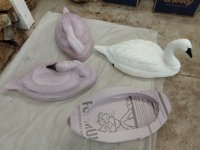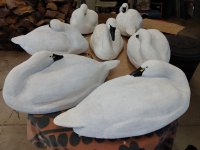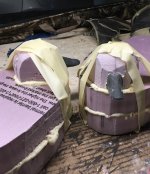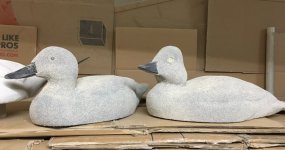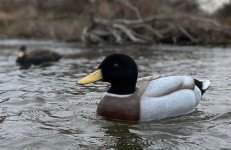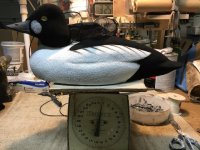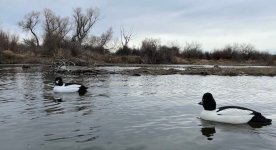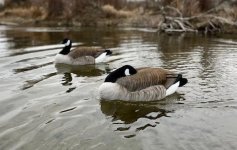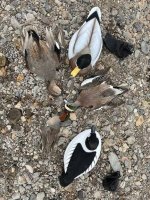B. Heitman
New member
At 74, I never dreamed of making my own dekes. But, with considerate help and inspiration from Don Mintz, a whole, new aspect of waterfowling has opened up for me.
These are some "foamer" sleeping Tundra Swans I carved and coated with finely ground walnut shell. They weigh 3# have a hollow bottom and a water keel. I dislike all of the monochromatic head positions of generic dekes and decided to "change up" my spread. You can't shoot swans in my state, but, they are GREAT confidence dekes for White fronted geese. Thank you Mr. Mintz. I'm sure glad I found you!!!
( The Tanglefree deke is for size comparison)
These are some "foamer" sleeping Tundra Swans I carved and coated with finely ground walnut shell. They weigh 3# have a hollow bottom and a water keel. I dislike all of the monochromatic head positions of generic dekes and decided to "change up" my spread. You can't shoot swans in my state, but, they are GREAT confidence dekes for White fronted geese. Thank you Mr. Mintz. I'm sure glad I found you!!!
( The Tanglefree deke is for size comparison)


